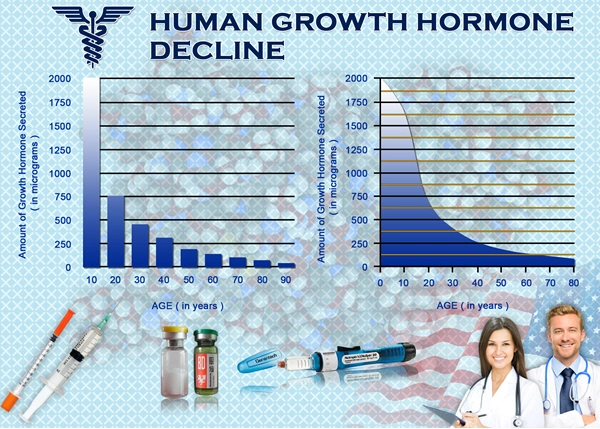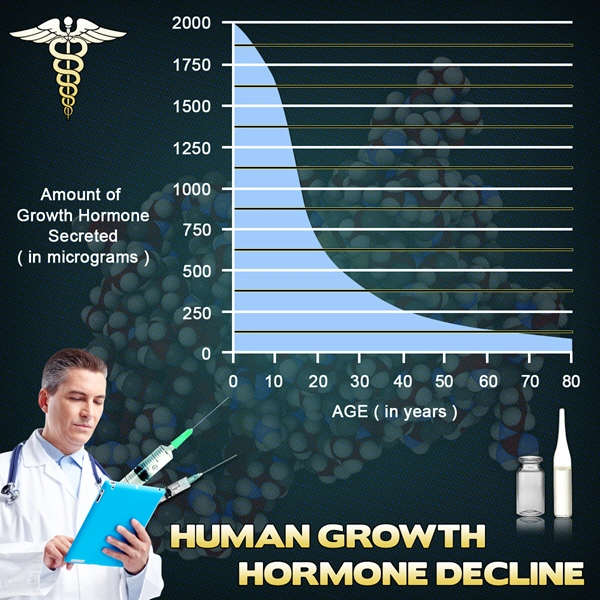Introduction
Hair loss, a condition affecting millions of American males, has traditionally been linked to genetics and hormonal changes. However, recent studies have begun to uncover a more insidious factor contributing to this widespread issue: environmental toxins. This article delves into the extensive analysis of urban and rural populations across America, revealing shocking findings about the impact of environmental toxins on hair loss in American males.
The Prevalence of Hair Loss Among American Males
Hair loss, medically known as alopecia, is a common concern for many American men. According to the American Hair Loss Association, by the age of 35, approximately 66% of American men will experience some degree of hair loss, and by the age of 50, about 85% will have significantly thinning hair. While genetic predisposition and hormonal imbalances are well-known contributors, the role of environmental toxins has been largely overlooked until recent years.
Environmental Toxins: A Hidden Threat
Environmental toxins, such as heavy metals, pesticides, and industrial chemicals, are ubiquitous in both urban and rural environments. These toxins can enter the body through various routes, including inhalation, ingestion, and skin absorption. Once inside the body, they can disrupt normal physiological processes, including those that govern hair growth and retention.
Urban vs. Rural: A Comparative Analysis
A groundbreaking study conducted across multiple states in the U.S. compared hair loss patterns in urban and rural male populations. The findings were startling. Urban males exhibited a significantly higher incidence of hair loss compared to their rural counterparts. Further analysis revealed that urban areas, with their higher concentrations of pollutants such as particulate matter, volatile organic compounds, and heavy metals, were associated with a greater risk of hair loss.
Mechanisms of Toxin-Induced Hair Loss
The mechanisms by which environmental toxins contribute to hair loss are multifaceted. Heavy metals like lead and cadmium can accumulate in the hair follicles, impairing their function and leading to hair thinning and loss. Pesticides, commonly found in both urban and rural environments, have been shown to disrupt hormonal balance, which can exacerbate androgenetic alopecia, the most common form of hair loss in men. Additionally, industrial chemicals such as polycyclic aromatic hydrocarbons (PAHs) can cause oxidative stress and inflammation, further damaging hair follicles.
Shocking Findings: The Extent of the Problem
The study's most shocking finding was the correlation between exposure to specific toxins and the severity of hair loss. For instance, men living in areas with high levels of air pollution were found to be 30% more likely to experience severe hair loss compared to those in less polluted areas. Similarly, exposure to water contaminated with heavy metals was associated with a 25% increased risk of hair loss.
Mitigating the Impact of Environmental Toxins
While the findings are alarming, there are steps American males can take to mitigate the impact of environmental toxins on their hair health. Reducing exposure to pollutants, such as by using air purifiers and avoiding areas with high levels of industrial activity, can be beneficial. Additionally, maintaining a healthy diet rich in antioxidants and nutrients that support hair health, such as vitamins A, C, and E, and minerals like zinc and iron, can help counteract the effects of toxins.
Conclusion
The revelation that environmental toxins play a significant role in hair loss among American males is a wake-up call for both individuals and policymakers. As we continue to navigate the complexities of modern living, it is crucial to address the sources of these toxins and implement measures to protect public health. By raising awareness and taking proactive steps, we can help American males maintain their hair health in the face of these hidden culprits.
Call to Action
American males are encouraged to be vigilant about their exposure to environmental toxins and to seek medical advice if they notice significant hair loss. Further research and public health initiatives are needed to address this growing concern and ensure a healthier future for all.

- Unveiling the Silent Culprit: The Connection Between Scalp Infections and Male Hair Loss in America [Last Updated On: February 25th, 2025] [Originally Added On: February 25th, 2025]
- Exploring Medical Wigs: A Vital Solution for Hair Loss in American Males [Last Updated On: March 1st, 2025] [Originally Added On: March 1st, 2025]
- Examining the Complexities: Unraveling the Medical Implications of Hair Loss [Last Updated On: March 2nd, 2025] [Originally Added On: March 2nd, 2025]
- Understanding the Link Between Thyroid Disorders and Hair Loss: Causes, Diagnosis, and Management [Last Updated On: March 3rd, 2025] [Originally Added On: March 3rd, 2025]
- Advancements in Hair Loss Treatments and Impact on Men's Health [Last Updated On: March 4th, 2025] [Originally Added On: March 4th, 2025]
- Understanding Male Hair Loss: Causes, Diagnosis, and Treatment Options in the US [Last Updated On: March 5th, 2025] [Originally Added On: March 5th, 2025]
- Understanding and Managing Pediatric Male Hair Loss: Causes, Diagnosis, and Treatment [Last Updated On: March 6th, 2025] [Originally Added On: March 6th, 2025]
- Evaluating Over-the-Counter Hair Loss Treatments: Effectiveness and Considerations for Men [Last Updated On: March 7th, 2025] [Originally Added On: March 7th, 2025]
- Comprehensive Guide to Holistic Hair Loss Treatments for American Men's Well-Being [Last Updated On: March 8th, 2025] [Originally Added On: March 8th, 2025]
- Unlocking the Genetics of Hair Loss: Insights, Treatments, and Future Management Strategies [Last Updated On: March 9th, 2025] [Originally Added On: March 9th, 2025]
- Chemotherapy-Induced Hair Loss in American Males: Causes, Coping, and Regrowth Strategies [Last Updated On: March 12th, 2025] [Originally Added On: March 12th, 2025]
- Unraveling the Link Between Stress and Hair Loss in American Males: A Comprehensive Medical Insight [Last Updated On: March 12th, 2025] [Originally Added On: March 12th, 2025]
- Understanding Hormonal Influences on Male Hair Loss: A Comprehensive Guide [Last Updated On: March 13th, 2025] [Originally Added On: March 13th, 2025]
- Debunking Hair Loss Myths: Facts, Causes, and Effective Treatments for American Men [Last Updated On: March 15th, 2025] [Originally Added On: March 15th, 2025]
- Understanding Hair Loss: Types, Causes, and Effective Treatments for American Males [Last Updated On: March 17th, 2025] [Originally Added On: March 17th, 2025]
- Monogenic Hair Loss in American Males: Genetic Insights and Management Strategies [Last Updated On: March 17th, 2025] [Originally Added On: March 17th, 2025]
- Alopecia Universalis: Understanding, Treating, and Coping for American Males [Last Updated On: March 17th, 2025] [Originally Added On: March 17th, 2025]
- Allergies and Hair Loss in American Males: Understanding the Indirect Connection [Last Updated On: March 17th, 2025] [Originally Added On: March 17th, 2025]
- Hair Loss in American Men Linked to Increased Heart Disease Risk: Emerging Evidence [Last Updated On: March 19th, 2025] [Originally Added On: March 19th, 2025]
- Topical Treatments for Hair Loss: Efficacy, Options, and Professional Guidance [Last Updated On: March 19th, 2025] [Originally Added On: March 19th, 2025]
- FDA-Approved Medications: Combatting Hair Loss in American Men [Last Updated On: March 19th, 2025] [Originally Added On: March 19th, 2025]
- Diabetes and Hair Loss: Understanding Causes and Management Strategies for American Men [Last Updated On: March 19th, 2025] [Originally Added On: March 19th, 2025]
- Understanding Male Hair Loss: Genetic, Hormonal, and Lifestyle Factors [Last Updated On: March 20th, 2025] [Originally Added On: March 20th, 2025]
- Hair Loss in American Males: Causes, Surgical Options, and Management Strategies [Last Updated On: March 21st, 2025] [Originally Added On: March 21st, 2025]
- Telogen Effluvium: Causes, Symptoms, and Management in American Men [Last Updated On: March 21st, 2025] [Originally Added On: March 21st, 2025]
- Hair Loss in American Men: Psychological Impacts and Coping Strategies [Last Updated On: March 21st, 2025] [Originally Added On: March 21st, 2025]
- Managing Male Hair Loss During Partner's Pregnancy: Causes and Strategies [Last Updated On: March 22nd, 2025] [Originally Added On: March 22nd, 2025]
- Understanding Hairline Recession: Causes, Impacts, and Treatment Options for American Men [Last Updated On: March 22nd, 2025] [Originally Added On: March 22nd, 2025]
- Innovative Hair Loss Treatments for American Men: Stem Cells, Gene Therapy, and More [Last Updated On: March 22nd, 2025] [Originally Added On: March 22nd, 2025]
- Hair Loss Solutions: Inspiring Case Studies and Treatment Advances for American Men [Last Updated On: March 23rd, 2025] [Originally Added On: March 23rd, 2025]
- Autoimmune Disorders and Hair Loss: Impacts and Treatments for American Males [Last Updated On: March 23rd, 2025] [Originally Added On: March 23rd, 2025]
- Innovative Treatments and Technologies Transforming Hair Loss Solutions for American Males [Last Updated On: March 23rd, 2025] [Originally Added On: March 23rd, 2025]
- Hair Loss in Young Males: Causes, Impacts, and Treatment Options [Last Updated On: March 23rd, 2025] [Originally Added On: March 23rd, 2025]
- Hair Cloning: A Revolutionary Approach to Permanent Hair Loss Solutions [Last Updated On: March 23rd, 2025] [Originally Added On: March 23rd, 2025]
- Aromatherapy for Hair Loss: Exploring Benefits and Limitations for American Males [Last Updated On: March 23rd, 2025] [Originally Added On: March 23rd, 2025]
- Antidepressants and Hair Loss: Insights and Management Strategies for American Males [Last Updated On: March 24th, 2025] [Originally Added On: March 24th, 2025]
- Anemia and Hair Loss in American Men: Causes, Prevalence, and Management Strategies [Last Updated On: March 24th, 2025] [Originally Added On: March 24th, 2025]
- Drug-Induced Hair Loss: Mechanisms, Common Culprits, and Management Strategies [Last Updated On: March 24th, 2025] [Originally Added On: March 24th, 2025]
- Anabolic Steroids and Hair Loss: Mechanisms, Impacts, and Mitigation Strategies in American Males [Last Updated On: March 24th, 2025] [Originally Added On: March 24th, 2025]
- PCOS in Men: Understanding Symptoms, Diagnosis, and Hair Loss Treatment Options [Last Updated On: March 24th, 2025] [Originally Added On: March 24th, 2025]
- Androgenetic Alopecia: Genetic Insights and Emerging Treatments for Hair Loss [Last Updated On: March 24th, 2025] [Originally Added On: March 24th, 2025]
- Strategies to Mitigate Chemotherapy-Induced Alopecia in American Males [Last Updated On: March 24th, 2025] [Originally Added On: March 24th, 2025]
- Medical Hair Loss in American Men: Causes, Impacts, and Holistic Management Strategies [Last Updated On: March 25th, 2025] [Originally Added On: March 25th, 2025]
- Postpartum Hair Loss in American Males: Causes, Symptoms, and Management Strategies [Last Updated On: March 25th, 2025] [Originally Added On: March 25th, 2025]
- Thyroid Disorders and Hair Loss in American Males: Causes, Diagnosis, and Treatment [Last Updated On: March 26th, 2025] [Originally Added On: March 26th, 2025]
- Understanding and Managing Male Hair Loss in Aging American Men [Last Updated On: March 26th, 2025] [Originally Added On: March 26th, 2025]
- Shock Loss After Hair Transplant: Understanding and Managing Temporary Hair Loss in American Males [Last Updated On: March 26th, 2025] [Originally Added On: March 26th, 2025]
- Male Pattern Baldness: Advances in Treatment and Future Prospects [Last Updated On: March 26th, 2025] [Originally Added On: March 26th, 2025]
- Diagnosing Hair Loss in American Men: Traditional and Advanced Techniques [Last Updated On: March 26th, 2025] [Originally Added On: March 26th, 2025]
- Trichotillomania in American Males: Understanding, Impact, and Treatment Options [Last Updated On: March 26th, 2025] [Originally Added On: March 26th, 2025]
- LLLT: A Promising Non-Invasive Solution for Hair Loss in American Males [Last Updated On: March 26th, 2025] [Originally Added On: March 26th, 2025]
- Anabolic Steroids and Hair Loss: Risks, Mechanisms, and Mitigation Strategies [Last Updated On: March 26th, 2025] [Originally Added On: March 26th, 2025]
- Hair Extensions and Permanent Hair Loss: Risks for American Males [Last Updated On: March 26th, 2025] [Originally Added On: March 26th, 2025]
- Hair Dyes and Hair Loss in American Males: Current Insights and Precautions [Last Updated On: March 26th, 2025] [Originally Added On: March 26th, 2025]
- Hair Follicle Miniaturization: Causes, Symptoms, and Treatments for American Males [Last Updated On: March 26th, 2025] [Originally Added On: March 26th, 2025]
- Immune System Disorders and Hair Loss in American Males: Causes and Treatments [Last Updated On: March 27th, 2025] [Originally Added On: March 27th, 2025]
- AI Revolutionizes Male Pattern Baldness Treatment: Personalized, Effective Solutions [Last Updated On: March 27th, 2025] [Originally Added On: March 27th, 2025]
- Vitamin Deficiencies and Hair Loss: Insights for American Men's Hair Health [Last Updated On: March 27th, 2025] [Originally Added On: March 27th, 2025]
- Post-COVID Hair Loss: Causes, Symptoms, and Management Strategies for American Males [Last Updated On: March 27th, 2025] [Originally Added On: March 27th, 2025]
- Hair Loss in American Males: Societal Views vs. Medical Facts and Holistic Management [Last Updated On: March 27th, 2025] [Originally Added On: March 27th, 2025]
- PRP Therapy: A Promising Non-Surgical Solution for Hair Loss in American Men [Last Updated On: March 27th, 2025] [Originally Added On: March 27th, 2025]
- Rogaine: Benefits, Risks, and Considerations for American Men's Hair Loss Treatment [Last Updated On: March 28th, 2025] [Originally Added On: March 28th, 2025]
- Hair Loss in American Males: Causes, Diagnosis, and Comprehensive Management Strategies [Last Updated On: March 28th, 2025] [Originally Added On: March 28th, 2025]
- Scalp Psoriasis and Hair Loss: Impacts and Management for American Males [Last Updated On: March 29th, 2025] [Originally Added On: March 29th, 2025]
- High Blood Pressure and Hair Loss: Insights for American Males [Last Updated On: March 30th, 2025] [Originally Added On: March 30th, 2025]
- Efficacy of Hair Loss Shampoos for American Men: Benefits and Limitations [Last Updated On: April 1st, 2025] [Originally Added On: April 1st, 2025]
- Menopause and Hair Loss in American Males: Understanding Andropause and Treatment Options [Last Updated On: April 3rd, 2025] [Originally Added On: April 3rd, 2025]
- Stem Cell Therapy: A Breakthrough in Treating Male Pattern Baldness [Last Updated On: April 3rd, 2025] [Originally Added On: April 3rd, 2025]
- Hair Loss in American Men: Psychological Impacts and Holistic Management Strategies [Last Updated On: April 5th, 2025] [Originally Added On: April 5th, 2025]
- Hair Loss After Weight Loss Surgery: Causes, Impacts, and Management for American Males [Last Updated On: April 6th, 2025] [Originally Added On: April 6th, 2025]
- Understanding Central Centrifugal Cicatricial Alopecia in American Males: Symptoms, Causes, and Management [Last Updated On: April 7th, 2025] [Originally Added On: April 7th, 2025]
- Hair Breakage vs. Loss: Causes, Differences, and Care for American Males [Last Updated On: April 7th, 2025] [Originally Added On: April 7th, 2025]
- Hair Loss and Mental Health: Navigating Psychological Impacts for American Men [Last Updated On: April 8th, 2025] [Originally Added On: April 8th, 2025]
- Minoxidil for American Men: Understanding, Using, and Maximizing Hair Regrowth [Last Updated On: April 8th, 2025] [Originally Added On: April 8th, 2025]
- Nutrition's Role in Combating Hair Loss: A Guide for American Men [Last Updated On: April 9th, 2025] [Originally Added On: April 9th, 2025]
- Protein Shakes and Hair Loss: A Comprehensive Guide for American Men [Last Updated On: April 9th, 2025] [Originally Added On: April 9th, 2025]
- GI Health and Hair Loss: Understanding the Link in American Males [Last Updated On: April 10th, 2025] [Originally Added On: April 10th, 2025]
- Lifestyle Changes to Combat Hair Loss in American Men: Diet, Stress, and Exercise [Last Updated On: April 11th, 2025] [Originally Added On: April 11th, 2025]
- Smoking and Hair Loss: Mechanisms, Evidence, and Preventive Strategies for American Males [Last Updated On: April 12th, 2025] [Originally Added On: April 12th, 2025]
- Weight Loss Diets and Hair Loss: Insights and Strategies for American Males [Last Updated On: April 13th, 2025] [Originally Added On: April 13th, 2025]



List of USA state clinics - click a flag below for blood testing clinics.
Word Count: 643



















































